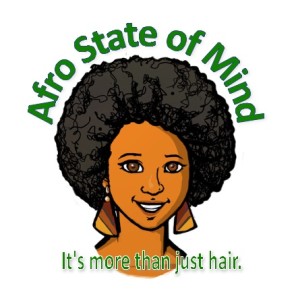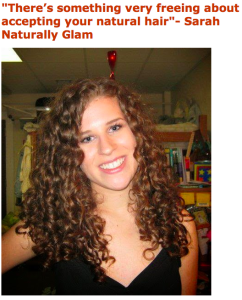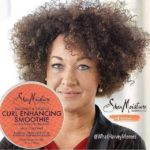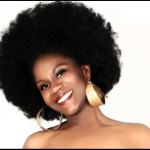Black people are not brown skinned White people. The collective experiences that shape the broader Black community’s experiences are not brown versions of the collective experiences of White people. I’ve quoted this sentiment before but feel it requires repeating ever so often.
Last week I stumbled upon an…uh…interesting article on Curly Nikki’s website. The article caught my eye because of the image it featured. It was linked to a picture of a White woman named Sarah, a hair and beauty vlogger, and discussed Sarah’s experiences growing up as a White woman who had very curly hair.
Like many, I’d mistakenly grown accustomed to viewing the Curly Nikki site as one dedicated to the natural hair experiences of Black women. I say “mistakenly” because as noted by Jamilah Lamieux over at Ebony, CurlyNikki.com clearly states on its about page that it is a place for:
“CurlyNikki.com was created to serve as an online “hair therapy session” for those struggling to embrace their naturally curly hair. It not only serves as an educational tool, but as a platform for each of you to share your experiences, frustrations, and triumphs of being Naturally Glamorous.”
See? Nothing there says it is a place for Black women to share their hair related experiences and heal from a lot of the internal pain associated with them. Nowhere does it say that it is a space to challenge the predominant beauty standard and its explicit and intentional exclusion of Black women.
And yet…for some reason when I see pictures and read stories on a site about people who look like me, written in a language about topics designed to appeal to my community, I tend to consider the site a “Black” site; disclaimers about it being a general site be damned.
So like many I was really surprised to see the site feature a story of a White woman’s adventures in embracing her naturally curly hair.
At first I thought the article was an Onion like spoof designed to entertain and provide some comedic relief. I quickly realized that I was wrong. It really was a legitimate piece detailing the experiences that Sarah, a curly haired White woman, had with embracing her naturally curly hair.
First Things First
I have love for Sarah. Frankly anytime a woman’s body—and by extension her hair—does not conform to the predominant beauty standard, she is subject to ridicule. In our society, straight hair is the desired norm. We are—all of us—taught to value straight hair above all else. So I don’t at all doubt Sarah’s sincerity. I’m sure as a curly haired White woman her life experiences would have been at least marginally different if she’d been born with straight hair, or even blonde hair for that matter.
But straight hair is merely one stop on the hierarchy of physical aesthetic preferences.
And in a country as steeped in racial discord as this one is, each stop on that hierarchy of hair desire is bathed in a healthy dose of racial indoctrination. Because no matter how challenging Sarah’s experiences as a curly haired White woman may be, those experiences have the benefit of being covered by the blood of White privilege.
There is no benefit like that of Whiteness.
Even for curly girls. Don’t believe me? Ask Sarah (or any of your curly haired White friends) if she (or they) would rather deal with curly hair in our society as a White girl or a Black girl.
I’ll wait.
A Space of Our Own
Now some of y’all were ticked off. By Sarah and/or by the inclusion of her story in a space some of us mistakenly thought was a “Black hair” space. And I get that. Because frankly, my initial reaction was to feel the same way. It seems like we rarely get a space where we get to enjoy the benefits of exclusivity the way other folks do.
But for me it’s a little deeper than that. After all, I’m willing to accept the fact that I had unrealistic expectations of the Curly Nikki site (again—she clearly states that the site is for the “naturally curly” community). Considering my hair is actually more nappy than curly, most of the “curly girl” articles out there are more appropriate for my multi-racial cousins than they are for girls with very kinky ethnically Black hair.
So boo on us me for projecting my desires onto a site not designed with my needs in mind…
For me the issue is one that extends more into the arena of false equivalence.
Just because two things have a few items in common does not make them equal. All “natural” hair experiences are not the same. Just like the racial dynamics applied to nearly any other area of Black and White life in American society, the White natural/curly hair experience is a “safe” one. It is as “protected” as Miss Ann was from the imagined threats that lived in the Black bodies slaving away under the master’s whip.
As I’ve said countless times before:
Black hair is not the same as White hair. It doesn’t act the same, grow the same or look the same. And it is not supposed to. Like Tom Burrell says in his book Brainwashed: Challenging the Myth of Black Inferiority, “Black people are not dark skinned White people.” Black hair is nappy. By design and divine intention. (And if you don’t believe in divinity – by evolutionary design.) Nappy hair has its own standard. That standard is not a brown version of the standard for Caucasian hair. Nappy hair has its own rules. Those rules are not a darker version of Caucasian hair rules. Nappy hair has its own needs. Those needs are not a negrofied version of Caucasian hair needs.
This is important because when you are dealing with the sickness of Internalized White Supremacy, like many descendants of enslaved and/or colonized Africans, one of the symptoms is a need or desire to be “the same” as the descendants of slave owners and their beneficiaries. It works something like this:
See!
We’re equal!
You have skin and I have skin!
You have eyes and I have eyes.
You have hair and I have hair!
So, like “race” totally doesn’t matter!
Sadly, many of us who returned to wearing Ethnically Black hair (aka those who “go natural”) did not take time to unlearn the belief systems inherent in a society that says Whiteness is more valuable than Blackness and Caucasian hair is more desirable than that of the more Negroid variety.
That matters because more than a few of us who saw that article wished we had curly hair. Just like Sarah. Some of us who cling to the title “curly girl” (knowing damn well that the only thing curly about our nappy hair is the bump you get when you roller set it) were happy to see a White girl featured in a “Black” “natural hair” space because We. Are. All. Equal.
Except we’re not.
Because nuance matters.
So yes, Sarah, you are a naturally curly girl. But your natural ain’t like mine. It ain’t like ours. And that’s ok because it is not supposed to be. We would all do well to remember that.
********
Looking for more thoughts from an Afro State of Mind? Check out my book Afro State of Mind: Memories of a Nappy Headed Black Girl now available on Amazon.com in paper back or e-book! And if you want to stay connected follow me on Twitter, “like” Afro State of Mind on Facebook or catch up on my latest youtube videos!






very insightful post
Thanks!
I like how you addressed this, truthful, plain and simple, without coming off like an attack.
Thank you! I find it is easier to attack than to analyze – but far less satisfying! These are very “tender” areas and we don’t have a lot of time/room for attacking each other. Much more important to think and build. More empowering too!
Thanks for writing this. I think Black women need to finally become okay with creating business, websites and organizations that specifically focus on Black women without feeling the need to “embrace” all cultures. By buying into this “multi-cultural” experience and way of thinking we basically are saying that our experiences are not unique and that our culture does not have depth and dimensions. I’m not Sarah, and Sarah is not me. While I am tolerant of Sarah and Sarah should be tolerant of me, our hair journeys will barely ever intersect. Mainly because Sarah doesn’t have to second guess whether her afro will be appropriate a job interview or PTA Meeting.
Girl – your comment spoke right to my heart! It is ok for us to have exclusive places. Every healthy group does so. I can respect that my friends from other communities have spaces that are for their community members only. Trying to force myself into those spaces is not only wrong but it is the height of arrogance. But we have to be at peace with holding some spaces sacred. I pray that as we build our collective cultural esteem we will be more empowered to do that.
How soon we forget that Korean’s own the black beauty supply market. There is actually a documentary by Aron Ranens which can be found on youtube. We spend the most on hair products and that money is not coming back to our community. I encourage other’s to watch the documentary if they have not already. Our community needs to come together. This is not about race, it’s about economics.
Thanks for reminding us about that documentary. Hmm…perhaps I should do a review…
First Lurie…you are such a great writer. It’s clarity warms my soul. Thank you!
@Dezi291 Thank you for bringing this up. It seems even the natural hair community’s $$ are destined to be co-opted by other people. I find the thought of this so exasperating! I thought for sure the natural hair movement would be the start of real black business/networking power. It has all the potential to be just that.
surely I meant “Its” : )
Thank you so much for the kind words! I agree – we are at a pivotal point with regards to who owns the money in the natural hair community. But I’m comforted by the fact that many of the naturals seem committed to working with and supporting products that were made for us by us. Let us pray that this trend continues.
Amen to this! Thanks for addressing this issue.
Thank you!
I’m so incredibly glad that I discovered your Youtube channel!! I have been hooked on your blogs since then. Thank you for being YOU! I’m extremely inspired!
I get why this was a controversy. Here’s my question– people say “it’s white privilege” “there is no benefit like whiteness”– is this strictly a black vs. white issue?
What about the women with really coily and kinky hair who aren’t black…but they aren’t “white” in the sense of a WASP? Where do those women fit in? Do they create their own space?
Hi Mila, thanks for commenting. That’s a great question too. But I think I would have to defer to the women in that position (i.e. women w/ coily/kinky hair who aren’t Black) to see how they feel about it. Race adds so many layers on top of already troublesome issues with hair…these are definitely things we need to be thinking more about.